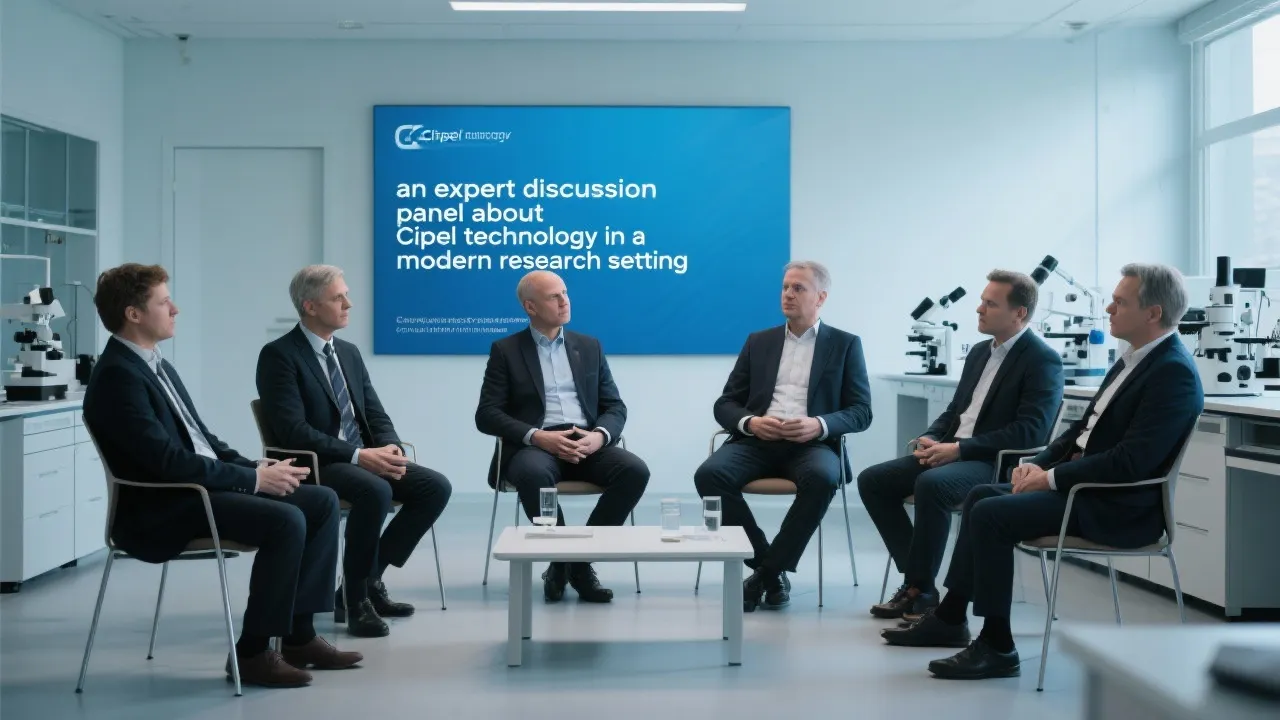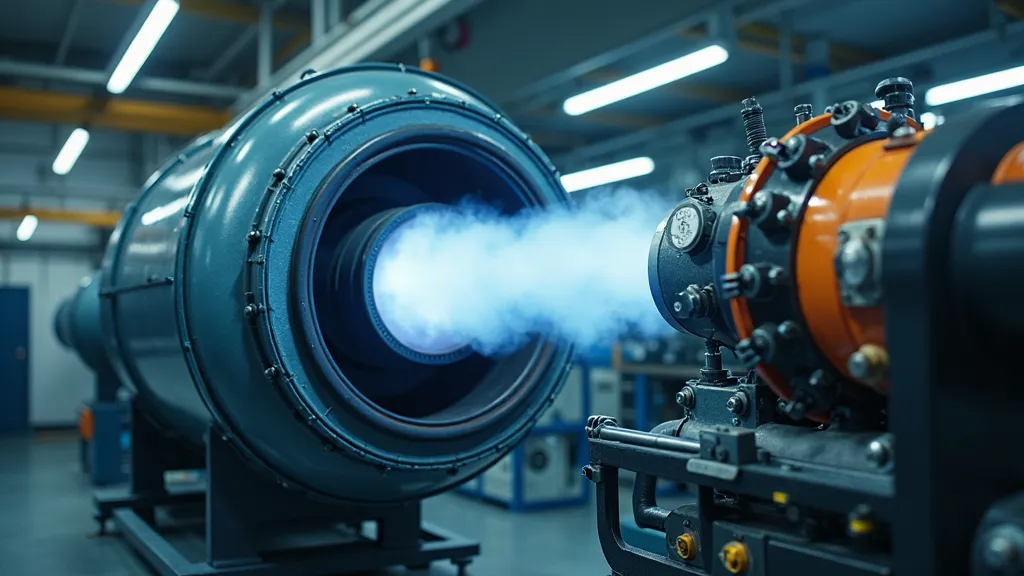Understanding the Impact of Cipel Technology
This article delves into the impact and nuances of Cipel technology, a significant player in the industrial sector. Cipel technology has been instrumental in optimizing processes by improving efficiency and ensuring sustainability, making it a topic of considerable importance for industry experts and businesses alike. Here, we explore the intricacies of its application, benefits, and future prospects.

Unveiling the Potential of Cipel Technology
Cipel, an emerging technology, has become a crucial component in various industrial applications. Its primary aim is to enhance production workflows and achieve sustainable development. As industries progressively move towards high-tech solutions, Cipel leads the forefront in this transformational era. Industry experts shed light on how this technology not only drives efficiency but also propels businesses toward a sustainable future. The advent of Cipel technology promises transformative changes where traditional methodologies are replaced with innovative solutions that are both economically beneficial and environmentally conscious.
The Efficiency Revolution
Cipel technology's adoption is driven by its efficiency-enhancing capabilities. As industries strive to optimize operations, Cipel presents a promising solution. Designed to streamline processes, it significantly reduces time and resource consumption. Utilizing Cipel, organizations are now reporting lower operational costs, increased output, and substantially improved profit margins. Such efficiency is especially beneficial in competitive markets where the demand for high-quality, cost-effective production is relentless. The technology employs advanced algorithms and data analytics to identify bottlenecks, thereby allowing companies to implement targeted improvements swiftly. For instance, factories that have adopted Cipel witness not only speedier production cycles but also the ability to adapt production lines dynamically to shifting market demands.
Sustainability at the Core
The modern industrial landscape is evolving to meet environmental exigencies. Here, Cipel contributes by promoting sustainable practices. Its design emphasizes reducing energy consumption and minimizing environmental impact. By integrating Cipel technology, companies align with global sustainability goals, thereby enhancing their corporate responsibility while reaping economic benefits. One tangible example includes the use of Cipel in energy-intensive industries such as chemical manufacturing, where it optimizes energy usage patterns. This reduction in consumption leads not only to lower utility bills but also smaller carbon footprints, positioning these companies favorably in a market that increasingly rewards environmentally friendly practices.
Applications in Diverse Sectors
Cipel's versatile applicability makes it indispensable across diverse sectors. From manufacturing to telecommunications, its integration reveals a remarkable transformation. In manufacturing, Cipel optimizes resource management and product quality. The technology enables real-time monitoring of production processes, allowing for immediate feedback and adjustments that greatly enhance product consistency and reduce defects. Meanwhile, in telecommunications, it enhances data processing speeds and reliability. For example, telecom providers utilizing Cipel have reported improved network management systems that reduce downtime, essential in an age where constant connectivity is expected. The cross-sectoral utility of Cipel demonstrates its potential to redefine industry standards and expectations, revealing itself as a critical enabler for companies looking to innovate and grow in an increasingly digital world.
The Future Outlook of Cipel Technology
As with any cutting-edge technology, Cipel continuously evolves. Future projections indicate expanded applications and further enhancements in efficiency and sustainability metrics. Experts forecast that as technology advances, so will the capabilities of Cipel, making it an even more integral component in the industrial domain. Businesses are advised to keep abreast of these developments to maintain competitive advantage. The continual integration of artificial intelligence into Cipel systems will allow for predictive analytics, giving companies the edge in anticipating market trends and consumer behavior. Additionally, with the rise of Industry 4.0, the interconnectedness of systems means that Cipel's role in facilitating seamless communication and workflow automation will become more pronounced.
| Sector | Application Effect |
|---|---|
| Manufacturing | Improves production line efficiency, reduces waste, enhances product quality through real-time monitoring. |
| Telecommunications | Increases data processing speeds, boosts network reliability and signal quality, leading to better customer satisfaction. |
| Energy | Optimizes energy consumption patterns, helping companies lower operational costs and reduce carbon footprints. |
| Agriculture | Facilitates precision farming by utilizing data analytics for better resource management and yield optimization. |
| Healthcare | Improves logistics and supply chain management, ensuring timely deliveries of critical medical supplies. |
FAQs
What industries benefit most from Cipel technology?
While many industries can benefit, sectors like manufacturing, telecommunications, energy, agriculture, and healthcare see the most significant impact due to Cipel's robust efficiency and sustainability focus. Manufacturing plants utilizing Cipel have reported soar in productivity as complex machinery becomes easier to manage. Telecommunications companies have improved their customer retention rates by ensuring fewer service interruptions, which is critical in today's highly competitive market.
How does Cipel technology enhance sustainability?
Cipel technology reduces energy consumption and waste generation during industrial operations, which helps companies meet environmental standards and sustainability goals. For instance, by optimizing the usage of machinery and materials, companies can significantly cut down on excess production waste. This optimization not only saves costs but also conserves valuable natural resources. Furthermore, as governments worldwide increasingly enforce stricter environmental regulations, adopting Cipel technology becomes a proactive approach to complying with these mandates.
What future developments can be expected in Cipel technology?
Expect further advancements in efficiency and application scopes as Cipel technology continues to evolve in conjunction with broader tech innovations. One potential area for growth is in the integration of IoT (Internet of Things) devices that can enhance Cipel's real-time data collection abilities, leading to more informed decision-making processes. Additionally, enhancements in machine learning algorithms may allow Cipel systems to learn from historical data to optimize operations dynamically and continually, making them smarter over time. This evolution positions Cipel at the intersection of innovation, allowing companies that adopt it early to set themselves apart from competitors.
Is investment in Cipel technology justifiable for small businesses?
While initially, it may seem geared towards large-scale operations, small businesses can greatly benefit from Cipel's process optimizations and cost-saving potentials over time. The initial investment can often be offset by the significant efficiencies gained. For example, a small manufacturer that adopts Cipel might streamline their production schedule, reducing overtime labor costs and minimizing waste. Furthermore, as small businesses adopt Cipel, their enhanced capabilities can allow them to meet demands that were previously out of reach, effectively leveling the playing field against larger competitors.
In conclusion, Cipel technology represents a significant advancement in industrial efficiency and sustainability. As industries continue to adapt to technological progress, Cipel stands as a testament to the future of smart, sustainable business practices. The implications of its adoption extend beyond mere operational improvements to encompass larger themes of corporate responsibility and global impact. The benefits of adopting Cipel are not only immediately tangible, as firms can see enhanced performance metrics, but they also contribute to long-term sustainability goals that address the pressing environmental challenges we face today.
As we progress into an era defined by rapid technological evolution, organizations that embrace Cipel will likely find themselves leading the charge toward a more productive and environmentally-friendly future. Whether through advanced manufacturing techniques, smarter telecommunications systems, or sustainable energy practices, Cipel holds the key to unlocking a world of substantial benefits. The discourse around its applications must evolve as well, with industries sharing best practices and insights gained from Cipel implementation. This initiative will be crucial in fostering a community of innovation that not only benefits individual firms but also society at large.
In reflecting on the role of Cipel technology, it's evident that its implications transcend operational boundaries. By enabling firms to enhance their performance while advocating for sustainability, Cipel may well represent a new paradigm in industrial operations. Ultimately, the collective focus on efficiency and sustainable development will yield dividends not only for businesses but also for the communities and ecosystems within which they operate.





